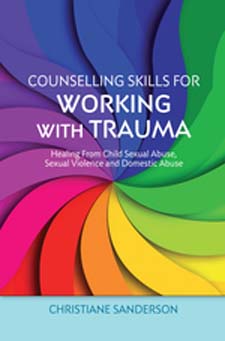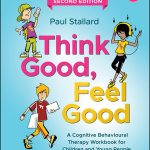Counselling Skills for Working with Trauma is a practical, introductory guide to counselling survivors of child abuse, neglect, rape, sexual violence, sexual trafficking, religious sexual abuse, and domestic abuse.
Written in an accessible style, it provides a comprehensive introduction to complex trauma accompanied by practical advice on how to create a safe environment in which survivors can learn the skills to restore control over trauma symptoms, to aid healing and post traumatic growth. The book covers all of the key principles including: understanding the role of dissociation in complex trauma; understanding the role of attachment; managing flashbacks, panic attacks, nightmares and dissociation; managing shame and guilt; managing relationships; and managing the impact of working with complex trauma. It explores how practitioners can work more effectively with trauma, and offers techniques and skills which can easily be integrated into different therapeutic models.
Featuring highlighted top tips, warnings and a range of concrete and specific exercises, this is an essential guide for all professionals working with child and adult survivors of complex trauma, sexual violence and domestic abuse.
Contents:
- Part I: Understanding Complex Trauma.
- 1. Understanding Trauma and Complex Trauma.
- 2. Understanding Trauma Symptoms.
- 3. Understanding the Role of Dissociation.
- 4. Understanding the Role of Attachment.
- Part II: Working with Complex Trauma.
- 5. Safe Trauma Therapy.
- 6. Therapeutic Challenges.
- 7. Building and Maintaining the Therapeutic Relationship.
- 8. The Process of Recovery and Healing.
- Part III: Skills to Manage Complex Trauma Symptoms.
- 9. Establishing Safety and Control.
- 10. Skills to Improve Daily Life.
- 11. Managing Sensations, Feelings and Grounding Skills.
- 12. Managing Flashbacks, Panic Attacks, Nightmares and Dissociation.
- 13. Managing Negative Thoughts and Beliefs.
- 14. Managing Memories.
- 15. Managing Shame and Guilt.
- 16. Managing Self-Harm.
- 17. Managing Boundaries.
- 18. Managing Relationships.
- 19. Managing Sexuality.
- 20. Managing Loss and Mourning.
- Part IV: Post Traumatic Growth.
- 21. Restoring Reality and Expressing Needs.
- 22. Relapse Prevention.
- 23. Reconnecting to Self and Post traumatic Growth.
- Part V: Professional Issues.
- 24. Practitioner Self Care.
- Appendices.Trauma Assessment Scales. Resources and Trauma Assessment. Organisations. References. Index.
Author Bio:
Christiane Sanderson is a lecturer in Psychology at the University of Roehampton, and Birkbeck College, University of London. With 25 years’ experience working in child sexual abuse interpersonal trauma and domestic abuse (and trauma), she has run consultancy and training for parents, teachers, social workers, nurses, (therapists), counsellors, solicitors, the Catholic Safeguarding Advisory Committee, the Methodist Church, the Metropolitan Police Service and the Refugee Council.





